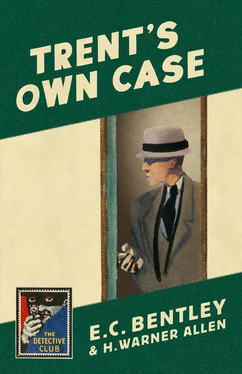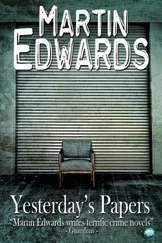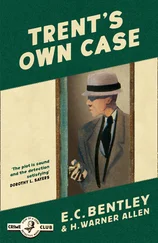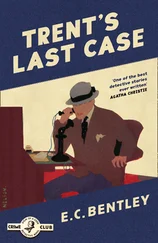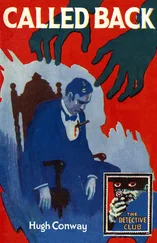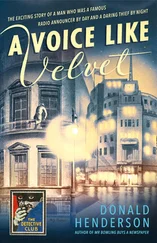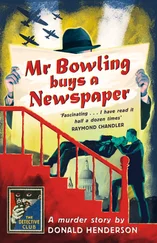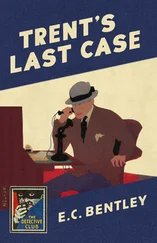‘That’s just what I can’t tell you,’ Verney said in a dull tone. He sat with hands clasped between his knees, and stared at the floor. ‘All I know is he was shot by someone last night in his bedroom at Newbury Place, when nobody else was there—it’s the evening his manservant always had free every week. The man found his master lying dead when he came home, and at once sent for the police. You cannot imagine the shock the news was to me—I didn’t even know Randolph was in London. The first I heard of it was when a C.I.D. man called on me early this morning, to see if I knew anything that could give them a line. All I could say was that the old man hadn’t an enemy in the world, as far as I knew. And I said the last I had seen of Randolph had been last week, when I was staying at Brinton Lodge, having various matters to talk over with him; and that then he had seemed quite at ease and free from any anxiety. Since I heard the news I’ve been living in a sort of bad dream. I had a very real feeling for the old man; more like veneration than anything else. And this means more of a chaotic smashup than you can very well imagine. At last I took to walking aimlessly about the streets, just to take the edge off my nerves; and when I found myself near your place, I thought I would look in for a talk. I suppose you had not seen Randolph lately?’
Trent looked at his visitor consideringly. What he had just been told by Verney made one thing clear: he, Trent, must have been one of the last persons to see Randolph before his being murdered. And he had strong reasons for wishing that interview of his with the old man to remain a private affair. It had concerned the reputation of a woman for whom he had a deep regard; and it had been of a decidedly unpleasant, not to say scandalous, nature. The less said about it the better, in Trent’s judgment; above all, to those with whom Randolph had left an honourable memory. As for the police, of course they must be told; for one thing, the information would set a limit in one direction on the time during which the murder had been committed. But Trent saw no reason for taking Verney into his confidence.
‘It is some time since I saw him,’ Trent therefore replied, with more truth than candour. ‘It’s no use offering you a drink, is it?’ he asked; and Verney shook his head. ‘Very often a cigarette helps you to pull yourself together,’ Trent went on. ‘You look all to pieces. Try one of these.’
Verney looked up gratefully. ‘Thanks, I will,’ he said, extending a shaking hand towards the box held out to him, ‘I know all about tobacco and what it can do to you, though it’s long enough since I smoked any.’ He lit a Virginia cigarette and inhaled deeply. ‘You see, the first year at Oxford I used to smoke a lot too much, as so many freshers do. Then, when I began to have dreams of a Blue, I dropped it altogether.’
‘And you got your reward, I dare say.’
Verney smiled, in momentary forgetfulness of the day’s bad news. ‘Do you take an interest in that sort of thing? Yes: three-mile; also cross-country running, since we are on the subject.’
‘No, I know nothing about it,’ Trent said; ‘but as soon as you spoke of dreaming of a Blue, I could see that your dream had probably come true. You look like a Blue. When Nokes outdares Stokes in azure feats, you know, it often marks him for life.’
Verney’s dejection again took possession of him. ‘Well, it came in useful when I began working for Randolph,’ he said. ‘The boys’ club part of the job was what always appealed to me most. You know about the Randolph Institute, I dare say. Nothing sectarian; just educational and social and athletic. I love it—in fact, I spend most of my time there, because there’s a room I use as a sort of general office for all Randolph’s charitable affairs. And of course, having a bit of a record in athletics gave me more influence with the lads than almost anything else could have done. Then my being a non-smoker was a good thing too, you see. You can hardly imagine the state that many of these young fellows get their respiratory tracts into with eternally smoking cheap fags. And as for running, there’s simply nothing like it for our sort of lads, so long as they’re sound physically—hard exercise in the open air, easy to fit in after the day’s work, and costs next to nothing.’
‘It’s good for you,’ Trent said. ‘You get all the exercise you need, I expect.’
‘All I need—yes. But to tell you the truth,’ Verney said, rather in the manner of one confessing to a secret vice, ‘since I began playing golf about five years ago, I prefer a round of that to any other open-air sport I know—and I have had a pretty good experience. Whenever I can manage it, I go off for a game to Matcham. It’s not a good course, and you often can’t get a caddy, but then I never want one; and it is the cheapest golf I know this side of London, which is what I have to consider. How I wish—but it is no use talking about that. As far as keeping fit goes, I have every opportunity, as you say. There’s nothing like running, above all, for that.’
‘There’s a good deal, no doubt,’ Trent said, ‘in having that sort of thing managed by someone who knows all about it.’
‘Yes,’ Verney said simply, ‘there is, of course. The boys have their committee; but they leave the whole show to me really, and I’m rather proud of the way our fellows have come forward since I took over. Last January the Randolph Athletic Club was runner-up in the Middlesex cross-country team championship, and challenged Southgate Harriers pretty closely. We provided the first two men home in that event, and we won the junior race easily. And now, I suppose’—he tossed the end of his cigarette into the fire—‘the Kilburn Institute’s all over and done with.’
Trent felt a moment of keen sympathy, for Verney’s whole manner was that of a heartbroken man.
‘Do you mean that his death really means the end of all that work?’ he asked. ‘Wasn’t there any endowment? Or surely there would be some provision in his will for the keeping-up of the various organizations he had started—what was that phrase he was so fond of using?—for the benefit of the community. I should think, from what I’ve heard, that the shutting-up of that Institute would pretty well amount to a social disaster for that part of London. It ought not to be possible.’
‘Well, it is,’ Verney said, as he accepted another cigarette. ‘You see, Trent, old Randolph had a rather strange side to his character as a public benefactor. He made a great fortune fairly early in life, and he devoted almost the whole of his income to charities and public objects. He continued to heap up more money; but I think it was because he could hardly help it. The real hobby of his life was to attend personally to all his enormous expenditure on charities and public objects. Sometimes he would give a great sum for some special purpose; but when he did that, it was always in the way of capital expenditure. He would build and equip a sanatorium, say, for some town or some big charitable institution; but he would never settle anything on it. He might, and usually did, put his name down year by year for a contribution to its upkeep; but he used to say he started a place like that as an opportunity for charity on the part of other people.’
Trent nodded. ‘That’s not unusual, I know,’ he said. ‘But how about places like the Institute? I always understood that was entirely his own private show, maintained by him exclusively. He surely can’t have left it high and dry, so to speak.’
‘That is just what I was coming to,’ Verney said. ‘The position of the Institute was just as you say—he held it in his own hands entirely, financing it as if it were a part of his own household. And he had other establishments on just the same footing, like the Randolph Infant Orphanage at Bishopsbridge, or the Randolph Mental Hospital at Claypoole. He was very proud of them, too, and saw to their being the best run places of their kind in the country. They cost him something, Trent; I’m telling you, and I know. But they never had a penny of funds of their own; and whatever Randolph parted with in any sort of way, he always would know what happened to it. He couldn’t seem to bear the idea of anyone else controlling wealth that he had amassed—that was at the bottom of it. And I don’t see that you could find fault with that, seeing that he did devote all those vast sums to other people, and put himself to a vast amount of trouble in looking after the spending of the money. But the unfortunate consequence is that now—’ he raised a hand, palm-downwards, and brought it down sharply on the arm of his chair.
Читать дальше
